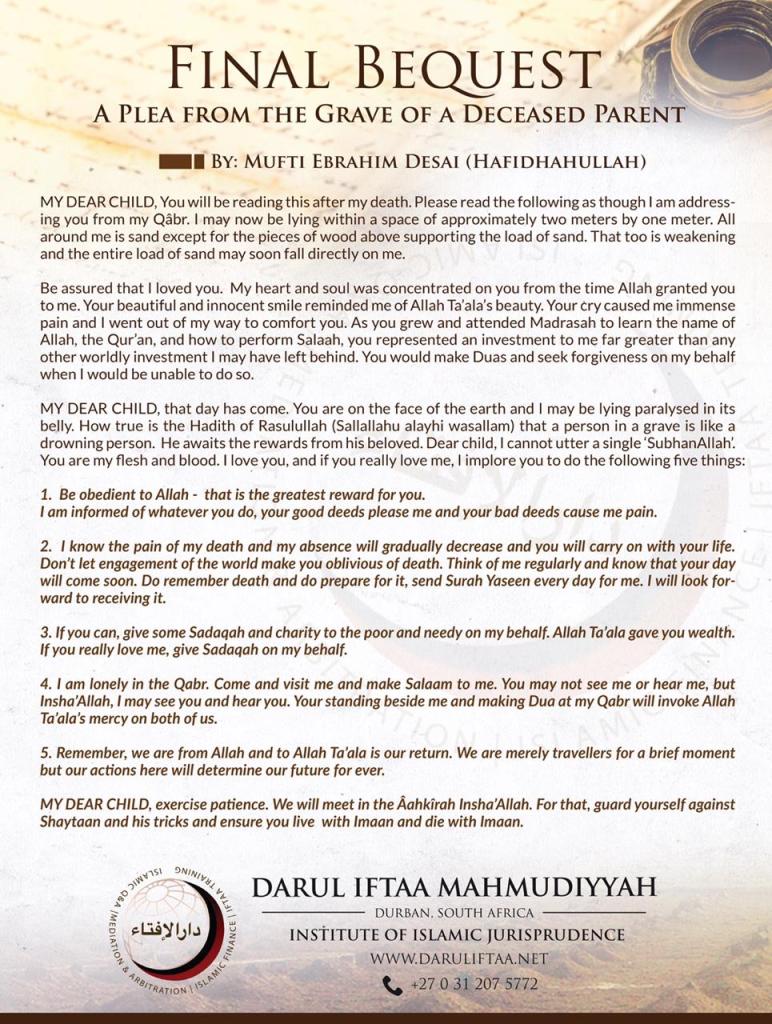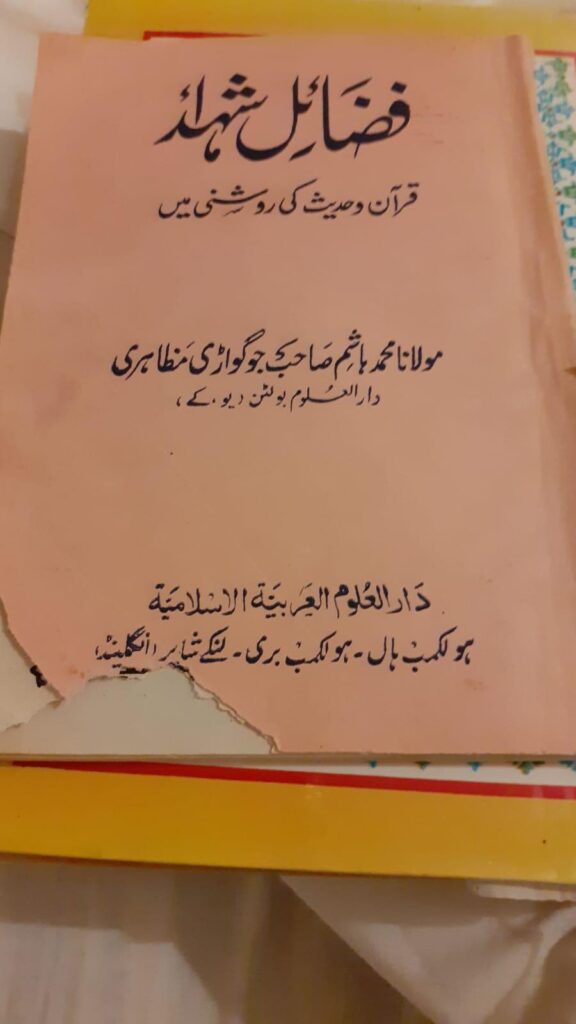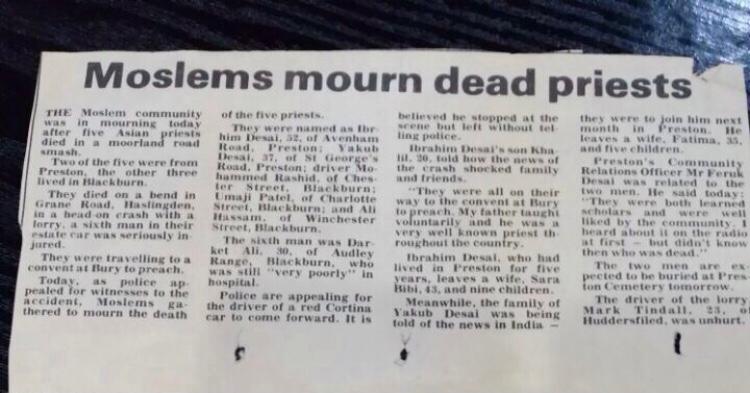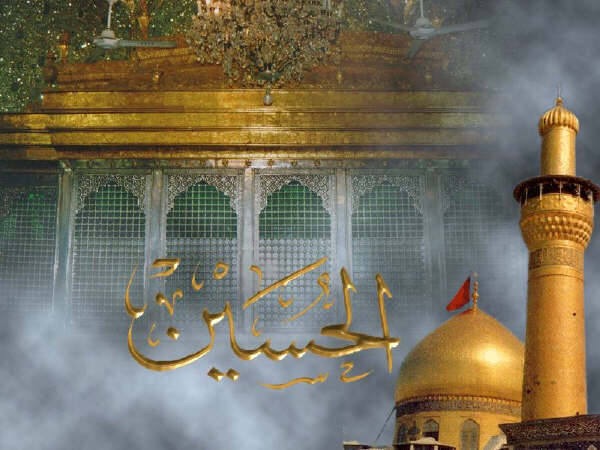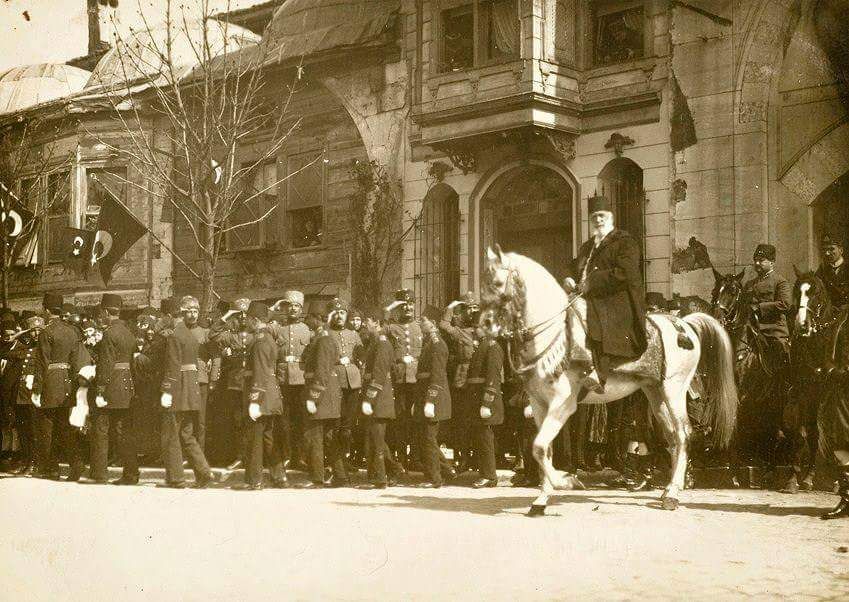by Shaikhul Hadith Mufti Ebrahim Saheb Desai
IMAM BUKHARI & HIS FAMOUS AL-JAAMIUS-SAHIH
1. Name
Abu Abdullah Muhammad ibn Ismail ibn Ebrahim ibn Mugira ibn Bardizba Al Ju’fi Al Bukhari.
2. Birth and Lineage
Born on Friday (after Jumuah) 13 Shawwal 194 A.H. Passed away on Friday 1 Shawwal 256 A.H. (the night before Eid-ul-Fitr) (Hadyus Saari – pg.477).
Bardizba was a fire worshipper. His son Mugira accepted Islam on the hands of Ju’fi the governor of Bukhara. That is why the name Ju’fi appears at the end of his name. There is not much mention about Imam Bukhari’s grandfather, Ebrahim. However, his father, Ismail, was a muhaddith and Ibn Hibban has rated him in the 4th category of reliable muhadditheen. He has narrated from Hammad ibn Zaid and Imam Malik. Abu Hafs Kabir says that he was present at the time of Ismails death when he heard him say: “I do not have a single dirham of doubt in my earnings.”
3. Abilities (Remarkable Memory)
When Imam Saheb was 11 years old, he was once at the lesson of Imaam Daakli and Imaam Daakhli narrated the following sanad: Sufyan from Abu Zubair from Ebrahim. Imaam Saheb said that this sanad is incorrect because Abu Zubair did not narrate from Ebrahim. When it was checked up, Imaam saheb was correct. (Hadyus Saari pg.478).
Hashid bin Ismail mentions that Imam Bukhari (R.A.) in his youth use to come to the Mashaaikh of Basra but he never used to write. After 16 days, we rebuked him for not writing down the notes (Ahadith). After a while, he said: “You have rebuked me enough – bring your kitabs.” Haashid says: “We brought our kitabs and Imam Saheb mentioned each and every hadith with their sanads and also corrected our kitabs and said: “You think I’m wasting my time!” (At that time there were over 15 000 Ahadith taken from those Mashaaikh of Basra) (Hadyus Saari pg.478).
Once Ishaaq bin Raah-weih mentioned that I know the 70 000 Ahadith mentioned in my book like I’m looking at them. When this was mentioned to Imam Bukhari (R.A.), he replied: “You are astonished at that, perhaps in this time and age, there are such people who know 200 000 Ahadith as mentioned in the kitaab (by this Imam Saheb was referring to himself) (Hadyus Saari pg.487).
Once when Imam Bukhari went to Baghdad, the muhadditheen got together and took 100 Ahadith and mixed up their sanads (chain of narrators) and matan (text). Thereafter 10 muhadditheen were appointed to present ten of these Ahadith each to him incorrectly. When each Hadith was presented, he replied each time with these words: “I don’t know this Hadith.” After all the Ahadith were presented to him, he mentioned each Hadith as it was narrated by those ten muhadditheen and then mentioned the correct version of each one (Hadyus Saari pg.486).
Abu Azhar (R.A.) says; “Once when Imam Bukhari (R.A.) came to Samarkand, 400 muhadditheen got together and mixed up the sanads of Iraq with Yemeni sanads and the sanads of the Haram with the Yemeni sanads in trying to make Imam Saheb commit a mistake, but not one mistake was taken out by anyone of the 400 muhadditheen.
4. Ustaads
Imam Bukhari (R.A.) said he has more than 1000 Ustaads. He knows the chain of narrators of every Hadith from every Ustaad. Ibn Hajar has categorized Bukhari’s Ustaads into 5 groups:
- Tabi’een
- Contemporaries of Tabi’een but did not narrate.
- Heard from elderly Tabi’een.
- Narrates from his colleagues who were his seniors.
- Narrates from his juniors.
5. Students
90 000 people have heard the Bukhari Shareef directly from Imam Bukhari (Hadyus Saari pg.491).
6. Sacrifices
Imam Bukhari (rahmatullahi alaih) invested his money of inheritance from his father’s estate and he should receive 500 dirhams monthly. All this used to be spent in attaining knowledge.
When he went to Adam ibn Abi Ayas there was a delay in receiving money – he ate grass, after 3 days somebody gave a bag of coins.
He got sick, his container of food was shown to doctors, they said this is like the Raahibs. Imam Bukhari did not eat curry for 40 years. When people insisted, he accepted to have bread and sugar as curry.
7. Piety and Character
Imam Bukhari said: “From the time I knew backbiting is haraam I never spoke ill about anyone.”
The need once arose for Imam Bukhari (R.A.) to travel by sea. He had with him 1000 ashrafis (gold coins). While on the ship, he met a person who became very close to Imam Saheb. One day (while on the ship) that person began shouting when asked the reason for the shouting he mentioned that he had a thousand Ashrafis that were missing. While every passenger on the ship was being searched, Imam Bukhari (R.A.) threw his 1000 Ashrafis into the sea. After all the passengers on board were searched and the money not found, the people began rebuking that person. When the journey ended that person came to Imam Bukhari (R.A.) and enquired as to what he had done with the money. Imam Bukhari (R.A.) replied that he had thrown it into the sea. That person asked why he had borne such a huge loss. He replied: “Are you not aware that my entire life has been devoted to the Ahadith of Rasulullah (Sallallahu Alayhi Wa Sallam) and my authenticity is very renowned. I was not prepared to lose what I had earned my entire life because of a few gold coins.” (Zafrul Muhassileen – pg.103)
Whilst practising archery, the arrow hit a bridge and damaged it. He asked the owner for forgiveness and offered to repair it.
Abu Hafs Kabir sent goods to him which he promised to sell to somebody at a certain price. Others offered a higher price. He refused.
Imam Bukhari (R.A.) mentioned: “I did not write any Hadith in this book before taking a bath and performing 2 rakats and I deduced this kitab from 600,000 Ahadith in 16 years.
8. Imam Bukhari’s Mazhab
1). According to ibn Taimiyyah (R.A.), Imam Bukhari was a mujtahid and an independent Imam.
2). Allama Taqi’uddeen Subki has regarded him as a Shafi because he was the student of Humaidi, who was a Shafi. This conclusion is not correct because then Imam Bukhari should be regarded as a Hanafi in view of Ishaaq ibn Raahwa – Imam Bukhari’s Ustaad being a student of Abdullah ibn Mubarak and Abdullah ibn Mubarak was a Hanafi.
3). Ibn Qayyim (R.A.) says Imam Bukhari, Muslim and Abu Dawood were strong followers of Imam Ahmad ibn Hambal.
After studying and closely looking at Imam Bukhari one will realise that Imam Bukhari did not follow any one Imam, he has his independent views on many issues, therefore Allama Anwar Shah Kashmiri (R.A.) and Sheikh Zakaria (R.A.) have the same view as that of Allama Taimiyya that Imam Bukhari is a mujtahid.
Hazrath Moulana Fazlur Rahman is of the opinion that Imam Bukhari’s Usools (fundamental principles) is not known, it is difficult to regard him as an independent Imam and Mujtahid.
My humble view is that not knowing the Usool of any Imam is not a criterion to disqualify him from being a mujtahid, just as there were many other mujtahids other than the famous and commonly known 4 Imams. Their usools are not known, but they were mujtahids or else it would mean that there were only 4 mujtahids in this Ummat. Yes, one may say that since the usools of Imam Bukhari are not known, he cannot be followed, just as we cannot follow for eg. Sufyan Sawri, Sufyan Uyaina, etc. etc.
9. Demise
Imam Bukhari very frequently became a victim of differences and disputes and he breathed his last in that condition. He was expelled from Bukhara 4 times.
1st – When he issued a ruling that foster relationships are effective even by drinking goat and sheep milk. This was in his early days. There is speculation whether this incident is true or not.
2nd – Many Ulama of Bukhara held the opinion that Iman is not makhlooq, because of that those Ulama had to leave Bukhara. Imam Bukhari was also amongst them.
3rd – After his experience with Imam Zuhli in Nishapur, Zuhli wrote to the Ameer of Bukhara complaining about Imam Bukhari which resulted in his expulsion.
Concerning the dispute with Imam Zuhli in Nishapur – When Imam Bukhari came to Nishapur he was very warmly welcomed and Imam zuhli, who was also the Ustaad of Imam Bukhari, encouraged the people to benefit and listen to ahadith from Imam Bukhari. Once somebody asked the question whether Kalamullah is makhlooq or not. Imam tried to evade the question but upon insisting he answered that Kalamullah is not makhlooq but our reciting the kalamullah is maqluq. People did not fully understand this and made an issue that Imam Bukhari says that “lafzi bilquran maklooq.” Imam Zuhli said, He (Imam Bukhari) is a bid’ati and no one should go to him. People left Imam Bukhari (R.A.) except Imam Muslim and Ahmad ibn Salama. Zuhli did not allow any person who subscribe to Imam Bukhari’s view or associated with him to sit in his lesson. Imam Muslim and Ahmad ibn Salama chose to be with Imam Bukhari. A few days later Imam Bukhari left Nishapur and went to Bukhara and was expelled from there. This was the third time he was expelled from Bukhara. There is some speculation that when Imam Bukhari began having discourses in Nishapur, Zuhli’s discourses were not largely attended hence Zuhli initiated Imam Bukhari’s removal from Bukhara. And Allah Ta’ala knows best
4th – Imam Bukhari was called to Bukhara and he received a very large reception. Ameer of Bukhara, Khalid Zuhli asked him to come to his place and teach his children Bukhari Shareef. Imam Bukhari refused and Khalid then used people to make objections on Imam Bukhari’s beliefs and thus he was finally expelled from Bukhara. Imam Bukhari cursed Khalid and within a month Khalid was dismissed and imprisoned.
After Imam Bukhari was removed for the fourth time by Khalid. He went to Khatang (today Khaja Abad) by his relatives. Abdul Quddus (R.A.) says that I heard Imam Bukhari making dua in tahajjud: “O Allah, the earth has become narrow for me despite its spaciousness, therefore call me to you.”
Gaalib ibn Jibraeel says – I was in Khartang when people of Samarqand sent a messenger to propose and invite Imam Bukhari to Samarqand. Imam Bukhari got ready to go and after walking about 20 steps he felt weak and lied down and breathed his last. This was on the night of Eid – 256 A.H. After his death, musk scent emitted from his grave. His opponents came to the grave to make tawbah. Upon his death, 2 persons saw a dream in which he made ziyarah of Rasulullah (Sallallahu Alayhi Wa Sallam) and the Sahaba (radhiallahu anhum) and they were waiting for somebody. Rasulullah (Sallallahu Alayhi Wa Sallam) said that they are waiting for Imam Bukhari.
10. IMAAM BUKHARI AND THE HANAFIS
Imam Bukhari’s family and friendly ties with Abu Hafs Kabir’s family.
Imam Bukhari was a student of Abu Hafs Kabir, he made sima of Jami Sufyan from him. Even after that Imam Bukhari and Abu Hafs Sagheer (Kabirs son) were contemporaries and colleagues in studying. It is obvious that because of Imam Bukhari and his family being close to Abu Haf’s family (Abu Hafs used to render financial help to Imam Bukhari) he was aware of the fiqh of the Ahnaaf.
In fact he first studied all the books of Abdulla ibn Mubarak who was a student of Abu Hanifa and member of the fiqh shura committee of the Ahnaaf.
However later in life when Imam Bukhari came into contact with Imam Humaidi and Nuaim Khuzaaie, who were very strongly opposed to the Ahnaaf – he too was influenced by their anti-Ahnaaf attitude.
11. Writings and Other Compilations
Imam Bukhari wrote many kitabs besides Bukhari Shareef (Al Jamius Sahih). Hereunder are some books which are written by Imam Bukhari
- Al Aadaabul Mufrad
- Juz – Raf-e-Yadain
- Juz – Qiraat-Kalful-Imam
- At-Taareekh-Al Kabeer – Al Awsat-As Sageer
- Kitabul Ashribah
- Kitabul Hibah
- Mabsoot
- Kitabul Ilal
- Kitabul Wuhdaan
- 10. Af’aalul Ibaad
11. ABOUT HIS BOOK AL-JAMIUS-SAHIH
Motivating factors of compiling Bukhari Shareef,
There were many books written on hadith but there were mixtures of Sahih and Daeef ahadith. Imam Bukhari felt that there should be a compilation of only Sahih ahadith. Once while sitting in the gathering of Ishaaq ibn Raahwai he (Ishaq) expressed his wish that a book of Sahih ahadith be compiled, when he heard this, his feeling of compiling such a book was strengthened and this was later consolidated with a dream wherein he (Imam Bukhari) saw a dream that he was waving away flies from Rasulullah (Sallallahu Alayhi Wa Sallam) with a fan. The dream was interpreted as Imam Bukhari will sift out the fabricated Ahadith form the authentic Ahadith.
The dominant purpose of compiling Bukhari Shareef from the motivating factors was to compile and gather only Sahih ahadith. Apart from that, Imam Bukhari designed and brightened his book with other aspects as well, for eg., he would deduce fiqhi aspects from the hadith, he would express the authenticity of the hadith by presenting another sanad (chain of narrators). He also explains the meaning of many ahadith etc. It is due to the above factors that the hadith in Bukhari Shareef are not in a subject or topic sequence. However, Imam Muslim has arranged and compiled his book according to a topic sequence.
13. Specialities of Bukhari Shareef
1. It is the first book compiled only on Sahih ahadith.
2. It took the author 16 years to compile his book. The tarajims (topics) were prepared at the Rawdhah Mubarak.
3. Abu Zaid Mirwazi Shafi, who was a very fond shafi was sleeping in the mataaf area when he made ziyarat of Rasulullah (Sallallahu Alayhi wasallam) who asked him, why do you not make research and read my book. Abu Zaid asked: “O Prophet of Allah which is your book?” Rasulullah (Sallallahu Alayhi Wa Sallam) replied the book of Muhammad ibn Ismail ie. Bukhari Shareef.
4. When reading at the time of difficulties and hardships, matters are made easy.
When read in a boat it does not sink.
5. There are 22 Sulusiyyaats in Bukhari Shareef. However, Darami has more sulusiyyaats than Bukhari Shareef.
14. Conditions of Choosing a Hadith
Muhammad Maqdasi says that the conditions of choosing a hadith in Bukhari Shareef are not mentioned by the author himself. The muhadditheen have pondered and studied the book and deduced these conditions, presuming they were the criteria set out by the author. Tahir Maqdasi says that the conditions of choosing a hadith in Bukhari Shareef are:
- The narrator is unanimously reliable. Here a question may arise as to why is there discussions on the reliability and authenticity of many narrators in Bukhari Shareef. Ibn Humam has answered this that certifying a narrator as reliable or unreliable is not absolute (qat’ie). A muhaddith certifies according to his understanding and research.
- The chain of narrators must be an unbroken one (itti’saal – see page five).
- If two narrators narrate from every narrator it is better but not a condition.
- Haakim, author of Mustadrak says it is a condition of Bukhari Shareef that there always be two narrators from a narrator. This is not correct. The first and last hadith indicates that even narrations with one narrator is accepted. In fact, there are about 200 such ahadith in Bukhari Shareef. Ziya Maqdasi has prepared a book Galaaibus Sahihain on this matter.
Hereunder is a more clear explanation as to what type of narrators are chosen by Imam Bukhari.
Imam Zuhri has five Islam & Muslims of students:
- Very reliable in memory and authenticity and always or for a very long time stayed in the company of Imam Zuhri.
- Also very reliable but stayed lesser than the first group.
- Stayed with Zuhri but were criticized by some.
- Did not stay with Zuhri and were criticized by some.
- Weak and unknown narrators.
Imam Bukhari took narrators of the first category, seldom would he take from the second category. Imam Muslim would take from the third category as well.
Abu Dawood and Nasai would take from the third category.
Tirmizi from the fourth category, Tirmizi is more superior to Abu Dawood because he discusses the reason a hadith is weak, etc.
Imam Abu Dawood uses the fifth category to support and consolidate. (Read after the section on itti’saal.)
A question arises that if according to Imam Bukhari, the chain of narrators must be an unbroken one, why are there ahadith-e-muanan (hadith with an-an).
According to Imam Bukhari for a hadith muanan to be under the category of unbroken chain of narrators, the narrator and from whom he is narrating must be contemporaries and must meet at least once.
In order to clearly understand the above, the following must be understood:
The narrator and from whom he is narrating, if they are not contemporaries, such a narration is named as Irsaale Jali.
If they are contemporaries but they did not meet, this is called Irsaale Khafi.
If they are contemporaries, met but narrates something he did not hear, this is Tadlees.
According to Imam Bukhari, the two must meet at least once. According to Muslim, merely being contemporaries is sufficient. Imam Bukhari views this as a possibility of being Irsaal, hence the narration will not be of an unbroken chain (muttasal).
One may raise an objection that according to Imam Bukhari, meeting once is sufficient, but still, there is a possibility of non-narration. The answer is that we are discussing a narrator who does not practice Tadlees. A mudallis’s narration is not muttasil, hence disqualifies from being accepted.
In the light of the above discussion, it is clear that Bukhari shareef is more superior to Muslim or any other book on hadith. Dare Qutni says:
The statement of Abu Ali Nishapuri: “There is no other kitaab on the surface of this earth more sahih than Muslim Shareef,” is opposed by Nishapuri’s Ustaad, Imam Nasai, who said there is no better book than Bukhari Shareef.
However, it must be noted that the superiority of Bukhari Shareef over Muslim Shareef and other books of ahadith is on a general basis, not that every hadith of Bukhari Shareef is more superior to any hadith in any other book of hadith.
15. The Topics (Taraajim) of Bukhari Shareef
- Sometimes the purpose of Imam Bukhari is not literal. He says something and means isharatun-nas or dalatun-nas.
- Imam Bukhari does not repeat a topic if so the purpose is different.
- Generally, the topic is like a claim and the ahadith follow it as proof, but in many instances, he means to explain the meaning of the following hadith.
- A tarjuma sometimes has two meanings, clear and unclear. People think and assume the clear meaning, hence they experience difficulty in reconciling the topic with the hadith, whereas the unclear meaning is the purpose of Imam Bukhari.
- Sometimes there is no link between the topic and hadith quoted under it, but the hadith with that link is nearby, if not further in the kitab, or maybe it is not in Bukhari Shareef, because it does not conform with the conditions of Bukhari Shareef.
- Sometimes with the topic, Imam Bukhari quotes sayings of sahaba and tabi’een (radhiallahu anhum), but those sayings have no direct relevance.
- Sometimes there is a baab but no hadith under the baab. The reason for this is that the hadith is somewhat related to the previous baab, just like the fasal of the fuqaha. Imam Bukhari’s purpose is also probably to sharpen the brain, that one ponders in the hadith and deduce some valid point.
- Sometimes there is a tarjama but no hadith under it. This is of different types:
Either there are verses of quran after the topic, or the verses are part of the topic. In the above two, the verses are sufficient substantiations. However if there is a topic and no verse or hadith, the reason is either that the hadith is not in conformity with the conditions set out by Imam Bukhari or the hadith is mentioned elsewhere and to avoid exact repetition, he did not mention it or for sharpening the brains, that one ponders over a hadith to substantiate.
- Sometimes a topic is mentioned twice, the purpose of the second is to elaborate on the first one.
10. Sometimes such a topic is mentioned that does not need any explanation but he brings it to refute an opinion of some muhaddith. This is common in Bukhari Shareef against Musannaf Abdur Razzak and Ibn Abi Shaiba.
16. Repetitions in Bukhari Shareef
Generally, Imam Bukhari repeats a hadith but with a different chain of narrators or different words. However, there are about 21 or 22 places in Bukhari Shareef wherein there are exact (sanad or words) repeated. This is indeed a very negligent number in comparison to the vast number of ahadith in Bukhari Shareef. However, where a hadith is repeated but with a different chain of narrators or different words, the benefits of reporting them are:
- When one sahabi narrates a hadith, that same hadith is narrated by another sahabi, the purpose of quoting the other sahabi’s narration is to remove the misconception of non-familiarity (garaabat).
- One narrator quotes the hadith short, the other complete, Imam Bukhari quotes both as narrated by the narrators.
- A hadith is narrated with different words, for every change of word he brings a different topic and repeats it.
- If there are two possibilities in one narration, of broken and unbroken chain of narrators (muttasil and ghair muttasil) Imam Bukhari quotes both possibilities to indicate that the irsaal does not prevent the itti’saal’s acceptance.
- Similarly, if there are two possibilities, of dependant (mawkuuf) and complete (marfu) narrations.
- In some chain of narrators, if there is an addition, Imam Bukhari brings both versions to show that both are correct.
- One narration is muanan, the other chain expresses meeting, Imam Bukhari brings both to remove doubt.
17. Important Books related to Bukhari Shareef
- Aini (762-855 A.H.) – He wrote his sharah (commentary) over a period of 27 years. This sharah consists of 25 volumes. In this meanings of the words in the hadith are given and the link between the topic (baab) and hadith and many other aspects.
- Fathul Baari (Ibn Hajar Asqalani 773 – 852 A.H.) – This sharah was written over a period of 25 years. It consists of 13 volumes. Before this sharah, Ibn Hajar wrote (Alhadyus Saari) an introduction to Bukhari Shareef and Taghleequt-Taaleeq. After Aini wrote his sharah, Ibn Hajar wrote Intiqaasul I’tiraaz to answer Ainis objections. In Aini and Fathul Baari, there are answers of the same objections by one another. This was also due to some students eg. Burhaan ibn Khizar attending both discourses and informing both of them accordingly. However both the sharah have their own beauties and positive features, but Aini is easier to refer to and understood quickly, due to its concise and orderly fashion.
- Irshaadus Saari (851- 923 A.H. Qastalani) – This sharah is also known as Sharah Qastalani. This sharah is a synopsis of the above two sharahs.
- Alkawaakibud-daraari (Allama Kirmaani 717-786 A.H.) – The author was sleeping by the kaba and there he was inspired to keep this name for his sharah.
- Faizul Baari (Allama Badre Aalam) – Has written the main points from Allama Anwar Shah Kashmiris lessons in Bukhari Shareef.
- Alabwaab Wat-taraajim (Hazrath Sheikh Zakariyya) – This is a must reference for Abwaab as well as other important discussions.
- Laamiud Daraari – (Moulana Yahya Saheb) noted the points from Hazrath Moulana Rashid Ahmed Gangohi’s discourses of Bukhari Shareef.
You may refer to the following books for an in-depth understanding on the issue of Taqleed (following a particular Madhab).
1- The legal status of following a Mazhab by Mufti Muhammad Taqi Usmani
http://www.islamibayanaat.com/EnglishLiterature/LegalStatusOfFollowingAMadhab-MuftiTaqiUsmani.pdf
2- Differences of the Imams by Sheikhul Hadeeth Moulana Zakariyya (Rahmatullahi Alayhi)
http://www.slideshare.net/IslamicBooks/differences-of-the-imams-by-shaykh-zakariyya-kandhelvi-ra
